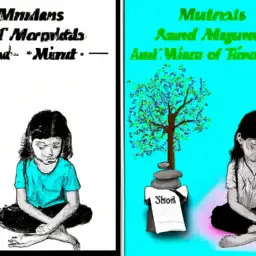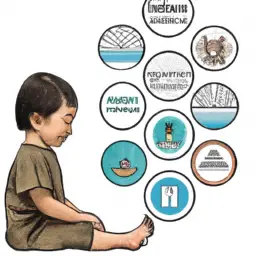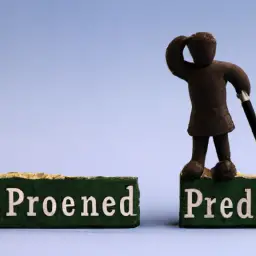Do you aspire to be a successful leader who inspires and motivates your team? Then you need to develop two essential qualities: grit and emotional intelligence.
Grit is the determination and perseverance to push through challenges and setbacks, while emotional intelligence is the ability to understand and manage your own emotions and those of others.
Together, grit and emotional intelligence create a winning combination that can help you lead with confidence, empathy, and resilience.
As a leader, you will inevitably face obstacles, setbacks, and difficult decisions. Without grit, you may give up too easily or lose your motivation when things get tough. On the other hand, emotional intelligence helps you navigate the complex interpersonal dynamics of leadership, such as understanding your team’s needs and motivations, communicating effectively, and resolving conflicts.
By developing both grit and emotional intelligence, you can become a strong and effective leader who can inspire your team to reach their full potential.
Key Takeaways
- Grit and emotional intelligence are essential qualities for successful leadership.
- Combining grit and emotional intelligence can improve problem-solving skills, increase resilience, and build stronger relationships.
- Practical strategies for implementing grit and emotional intelligence in leadership include practicing self-awareness, seeking feedback, and encouraging open communication.
- Prioritizing self-care and maintaining a healthy work-life balance is crucial for effective leadership.
Understanding Grit and Emotional Intelligence in Leadership
Understanding the intersection of grit and emotional intelligence is crucial for effective leadership. Grit and resilience are often used interchangeably, but they’re not the same.
Grit is the ability to persevere and stay committed to long-term goals despite setbacks and challenges. Resilience, on the other hand, is the ability to bounce back from adversity quickly. Both are important qualities for leaders to possess, but grit is particularly important for achieving long-term success.
Emotional intelligence and social intelligence are also often confused, but they’re different concepts. Emotional intelligence is the ability to recognize and regulate your own emotions and the emotions of others. Social intelligence, on the other hand, is the ability to understand social situations and adapt your behavior accordingly.
Both are important for effective leadership, but emotional intelligence is particularly important for building strong relationships with team members and stakeholders. By understanding the differences between grit and resilience, as well as emotional intelligence and social intelligence, leaders can develop a winning combination that’ll help them succeed in their roles.
Developing Grit as a Leader
If you want to develop grit as a leader, you need to start by defining your long-term goals.
Once you have a clear vision of where you want to go, you can start embracing challenges and setbacks as opportunities to learn and grow.
To stay focused and motivated, it’s important to remind yourself of your why and the impact you want to make in the world.
Defining your long-term goals
To truly succeed as a leader, you need to have a clear idea of your long-term goals and how they align with your values. Identifying priorities and creating a roadmap can help you achieve that clarity. Here are three steps to help you define your long-term goals:
-
Reflect on your values: Your long-term goals should align with your values. Take some time to reflect on what’s important to you and what you want to achieve in your personal and professional life.
-
Set specific goals: Once you have a clear understanding of your values, set specific goals that align with them. These goals should be measurable, attainable, and time-bound.
-
Create a plan: Break down your long-term goals into smaller, achievable steps. Create a plan that outlines the actions you need to take to achieve your goals. This plan will serve as your roadmap to success.
By defining your long-term goals and creating a plan to achieve them, you can stay focused, motivated, and committed to your values and vision as a leader.
Embracing challenges and setbacks
When facing challenges and setbacks, you must remember that they’re opportunities for growth and learning, so embrace them with a positive attitude.
Overcoming obstacles is a key trait of successful leaders, and it requires resilience in leadership. Instead of letting setbacks hold you back, use them as a chance to improve your skills and knowledge.
Resilience in leadership means being able to bounce back from adversity and move forward with determination and confidence. It’s about having the mental toughness to withstand difficult situations and keep pushing towards your goals.
By embracing challenges and setbacks, you can build your resilience and become a stronger leader who’s better equipped to handle whatever comes your way.
Remember, setbacks aren’t failures – they’re simply temporary roadblocks that can be overcome with the right attitude and mindset.
Staying focused and motivated
Staying focused and motivated can be tough, but it’s important to remember why you started and keep pushing towards your goals. Here are some tips to help you stay on track:
-
Break down your goals into smaller, achievable tasks. This can help you stay motivated by giving you a sense of progress and accomplishment.
-
Find a support system. Surround yourself with people who believe in you and your goals. They can help keep you motivated when you’re feeling discouraged.
-
Visualize your success. Imagine yourself achieving your goals and how it’ll feel. This can help you stay focused and motivated when faced with distractions and obstacles.
Remember, staying focused and motivated isn’t always easy, but it’s worth it in the end. Use these techniques to help you overcome distractions and obstacles, and keep pushing towards your goals.
Cultivating Emotional Intelligence in Leadership
As a leader, you can enhance your effectiveness by cultivating emotional intelligence, allowing you to better understand and connect with your team members. Emotional intelligence involves being aware of your own emotions, as well as those of others, and being able to manage them effectively. This not only helps you avoid conflicts but also enables you to communicate more effectively, motivate your team, and build stronger relationships with them.
To cultivate emotional intelligence, it’s important to focus on building self-awareness and empathy. Self-awareness involves being honest with yourself about your strengths and weaknesses, understanding how your emotions influence your behavior, and recognizing when you need to take a step back. Empathy, on the other hand, involves understanding and sharing the feelings of others. It’s about being able to put yourself in their shoes, listen actively, and respond appropriately. By mastering these skills, you can become a more effective leader, build stronger relationships with your team members, and create a more positive and productive work environment.
| Self-awareness | Empathy | Action | |
|---|---|---|---|
| Reflect on your emotions and reactions. | Listen actively and provide support. | Practice active listening. | |
| Seek feedback and be open to constructive criticism. | Acknowledge and validate others’ feelings. | Show appreciation and gratitude. | |
| Identify your triggers and develop coping mechanisms. | Be aware of nonverbal cues. | Use positive language and tone. | |
| Take time for self-care and stress management. | Practice perspective-taking. | Encourage open communication. | |
| Practice mindfulness and meditation. | Demonstrate respect and understanding. | Lead by example. | …and strive to create a positive and supportive environment for all individuals involved. |
The Importance of Combining Grit and Emotional Intelligence
You can enhance your leadership skills by merging determination and empathy. Combining grit and emotional intelligence can have a significant impact on your ability to lead effectively. Here are some benefits of combining grit and emotional intelligence in leadership:
-
Improved problem-solving skills: When you combine grit and emotional intelligence, you’re better equipped to handle difficult situations. Emotional intelligence helps you understand the emotions of those around you, while grit gives you the determination to push through challenges and find solutions.
-
Increased resilience: Grit and emotional intelligence work hand-in-hand to help you bounce back from setbacks. Emotional intelligence helps you regulate your emotions, while grit gives you the determination to keep going even when things get tough.
-
Stronger relationships: When you have both grit and emotional intelligence, you’re better able to connect with others and build strong relationships. Emotional intelligence helps you understand the emotions of those around you, while grit gives you the determination to follow through on your commitments.
To implement grit and emotional intelligence in your leadership style, here are some practical strategies to consider:
-
Practice self-awareness: Developing emotional intelligence starts with understanding your own emotions. Take time to reflect on your feelings and how they impact your decision-making.
-
Set goals: Grit is all about setting long-term goals and working towards them. Set realistic goals for yourself and your team and develop a plan to achieve them.
-
Foster a positive team culture: A positive team culture can help build resilience and foster a sense of determination. Encourage your team to support each other and celebrate successes together.
Examples of Grit and Emotional Intelligence in Successful Leaders
When leaders possess a strong determination to overcome challenges and the ability to understand and connect with others on an emotional level, they’re more likely to achieve success and inspire their teams to do the same.
Real-life examples of this winning combination can be seen in successful leaders like Jeff Bezos, the CEO of Amazon, and Mary Barra, the CEO of General Motors.
Jeff Bezos has been described as having a never-give-up attitude that’s fueled by his grit to push through obstacles and his emotional intelligence to connect with customers, employees, and investors.
Mary Barra is known for her ability to empathize with her team and customers, while also maintaining a strong sense of determination to drive the company forward.
The benefits of combining grit and emotional intelligence in leadership include increased motivation and productivity for the team, as well as improved decision-making and communication skills for the leader.
However, the drawback can be that it may be difficult to balance these two traits and maintain a healthy work-life balance.
Tips for Developing Grit and Emotional Intelligence in Leadership
Now that you’ve seen examples of how successful leaders use grit and emotional intelligence, it’s time to start developing these skills yourself. Building resilience and managing emotions is crucial for effective leadership through adversity, and empathy is essential for creating positive relationships with your team.
Here are some tips to help you develop grit and emotional intelligence in your leadership:
- Practice mindfulness techniques such as deep breathing and meditation to help you stay calm in stressful situations.
- Seek out feedback from others to gain a better understanding of how your actions and words impact those around you.
- Set realistic goals and work towards them consistently, even when faced with obstacles.
- Learn from failures and use them as opportunities for growth and improvement.
- Prioritize self-care and make time for activities outside of work to recharge and maintain a healthy work-life balance.
By focusing on these tips, you can begin to cultivate the grit and emotional intelligence needed to lead with confidence and compassion. Remember, leadership isn’t just about achieving success, but also about building strong, supportive relationships with those around you.
Frequently Asked Questions
What is the difference between grit and emotional intelligence?
So, you’re curious about the difference between grit and emotional intelligence.
Well, grit is the ability to persevere and stay committed to a long-term goal, despite obstacles and setbacks. It’s about having the passion and drive to keep going, even when things get tough.
Emotional intelligence, on the other hand, is all about understanding and managing your own emotions, as well as the emotions of others. It involves being aware of your own feelings and how they affect your behavior, as well as being able to empathize with others and respond appropriately to their emotions.
Both grit and emotional intelligence are key characteristics for personal growth, as they help you overcome challenges and build strong relationships.
How can leaders balance the need for grit with the need to be emotionally intelligent?
When it comes to leading, you must find a way to balance toughness and empathy. It can be challenging to navigate difficult decisions with emotional intelligence while also being firm and resolute.
However, it’s essential to find a way to incorporate both traits into your leadership style. You don’t have to sacrifice one for the other. Instead, try to find a balance between grit and emotional intelligence.
Remember that being emotionally intelligent doesn’t mean being weak or indecisive. It means being aware of your emotions and using them to connect with others. By finding this balance, you can become a more effective leader who inspires and motivates your team while still getting the job done.
Can emotional intelligence be developed in leaders who lack it?
If you’re a leader who lacks emotional intelligence, don’t worry – it’s not too late to develop it. Developing EQ in leaders is possible through self-reflection, seeking feedback, and practicing empathy.
Overcoming emotional barriers is essential for leaders to connect with their team members and create a positive work culture. It requires being open to learning and willing to make changes in your behavior and communication style.
With effort and dedication, any leader can develop emotional intelligence and become a more effective and empathetic leader.
Are there any negative consequences to having too much grit as a leader?
When it comes to being a leader, having grit is definitely a positive trait. However, having too much grit can also have its potential drawbacks.
If you’re always pushing yourself and your team to the limit, it can lead to burnout and potentially cause your team to resent you. Therefore, it’s important to find balance in your leadership style.
Incorporating emotional intelligence can help you understand the needs and limitations of your team, and allow you to adjust your approach accordingly. By finding the right balance between grit and empathy, you can become a more effective leader who inspires and motivates their team while also ensuring their well-being.
How can leaders measure their own levels of grit and emotional intelligence?
Assessing your own levels of grit and emotional intelligence can be a complex task, but there are a few ways to go about it.
Self-evaluation can be a useful tool for assessing your own level of grit, as it allows you to take a step back and reflect on your own experiences and actions. However, it’s important to remember that self-evaluation can sometimes be biased, so it’s always beneficial to seek external feedback from colleagues or mentors.
When it comes to enhancing emotional intelligence, there are various methods available. Training programs can provide a structured approach to learning new skills and techniques, while experience can help you develop a deeper understanding of your own emotions and those of others.
Ultimately, a combination of both approaches can help you become a more effective leader who is able to navigate complex situations with confidence and empathy.
Conclusion
Congratulations! You’ve made it to the end of the article and now you have a better understanding of the importance of combining grit and emotional intelligence in leadership.
As a leader, it’s crucial to develop both characteristics in order to lead effectively and achieve success. Grit allows you to persevere through challenges and setbacks, while emotional intelligence allows you to understand and connect with your team on a deeper level.
By developing both, you can create a supportive and resilient workplace culture that fosters growth and success. Remember to continue honing these skills and seeking out opportunities to practice them in your leadership role.
With perseverance and empathy, you can become a great leader that inspires and motivates others.















































































































